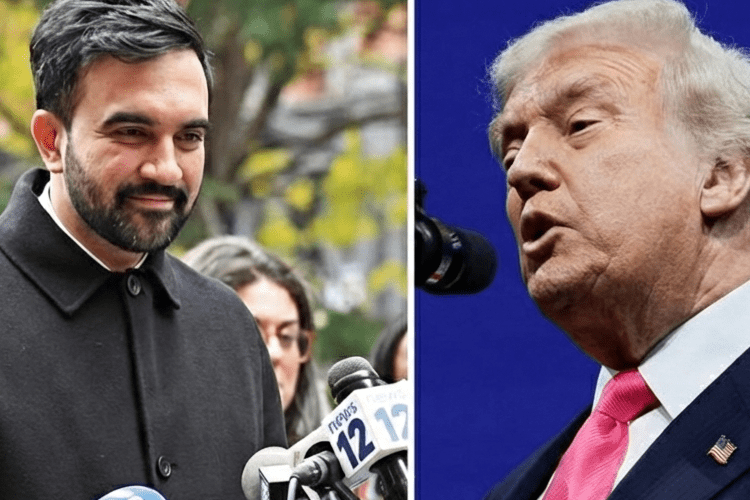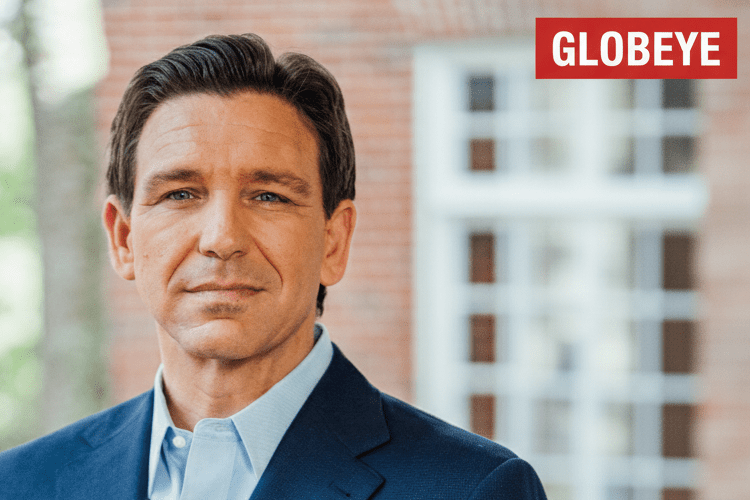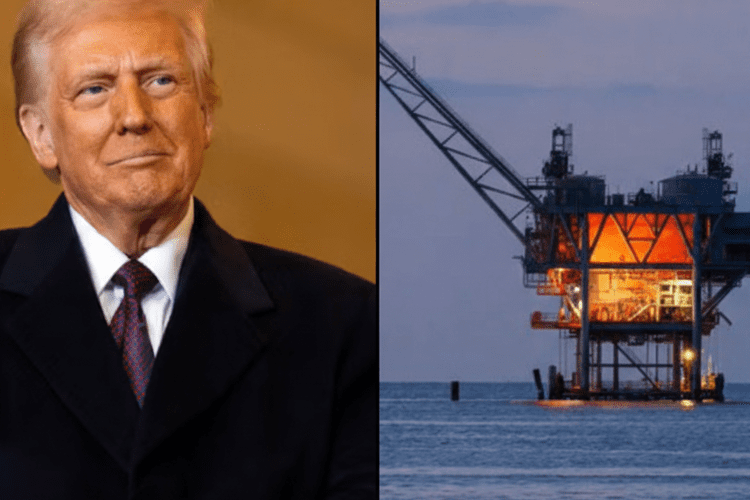Will Trump’s ‘Little Communist’ Jab Derail NYC’s Plea for Lifeline Funding?
In the shadowed glow of a City Hall Park presser under a slate-gray November sky, Zohran Kwame Mamdani stood tall amid a thicket of microphones and skeptical stares, his Queens accent cutting through the chill like a subway rumble. It was Thursday, November 20, 2025, and the 34-year-old democratic socialist—fresh off a razor-thin victory that upended New York’s political order—didn’t mince words about the high-wire act awaiting him 250 miles south in Washington. “I have many disagreements with the president, and I believe that we should be relentless and pursue all avenues and all meetings that could make our city affordable for every single New Yorker,” Mamdani declared, his dark eyes steady, braids framing a face that carried the weight of immigrant dreams and assembly hall grit. The crowd—union reps in Carhartt jackets, young activists clutching “Tax the Rich” signs, weary commuters nursing coffees—leaned in, sensing the audacity of the moment: a Ugandan-born son of exiles, elected mayor of the world’s financial capital, about to walk into the Oval Office and ask Donald Trump, the Queens-born billionaire who’d branded him “my little Communist,” for a financial lifeline. As Friday’s summit loomed, this wasn’t just politics; it was a poignant collision of two unorthodox outsiders, each forged in the fire of voter frustration, now face-to-face in a room where deals are struck and dynasties rise or fall.
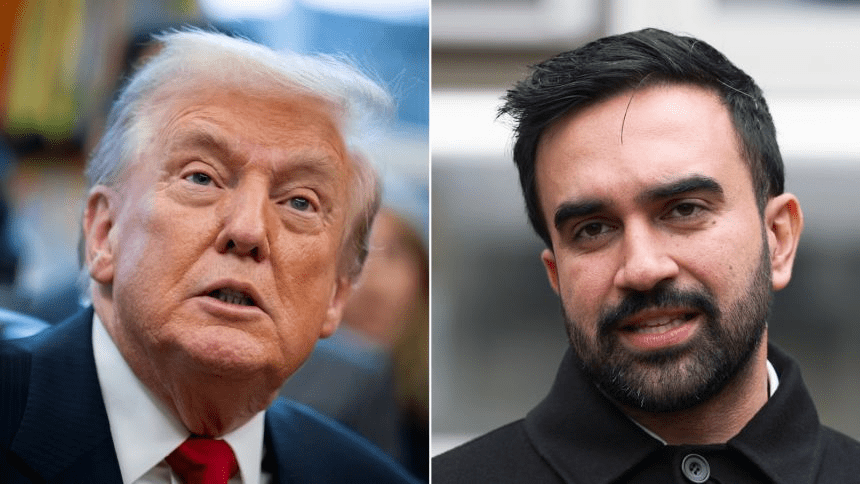
Mamdani’s path to this precipice feels like a modern Horatio Alger tale laced with the urgency of a city gasping for air under the crush of costs. Born in Kampala in 1991 to Indian-Ugandan parents—Mahmood Mamdani, the Columbia scholar who’d fled Idi Amin’s terror, and filmmaker Fatima whose lens captured displacement’s quiet dignity—he landed in Astoria at seven, a wide-eyed boy navigating public schools and halal markets where the N train’s rattle was his lullaby. By his teens, the rapper known as “Mr. Cardamom” was blending desi beats with hip-hop bars, but activism called louder: interning for AOC, marching for Black Lives Matter, channeling his refugee roots into a 2020 assembly win for District 36. At 29, he became the youngest state legislator in generations, his bills a blueprint for boldness—rent freezes for 200,000 units, universal childcare for 100,000 kids, a $30 minimum wage that had landlords fuming and tenants cheering. The 2025 mayoral race was his crucible: against Eric Adams’ scandals and Andrew Cuomo’s comeback bid, Mamdani’s DSA-fueled campaign—10,000 volunteers knocking on doors, $15 million in small-dollar donations—tapped the pulse of a city where median rents hit $3,500 and evictions surged 25% post-pandemic. On November 4, with 50.4% of the vote in a squeaker over Cuomo’s 45.2%, he shattered barriers: first Muslim, first South Asian, youngest mayor in over a century. Jubilation erupted in Jackson Heights halal spots and Bronx bodegas, but Trump, watching from Mar-a-Lago, saw red: “This Communist Mayor of New York City, Zohran ‘Kwame’ Mamdani, has asked for a meeting,” he posted on September 15, after Gov. Kathy Hochul’s endorsement, vowing to “cut off federal funds like a knife.”
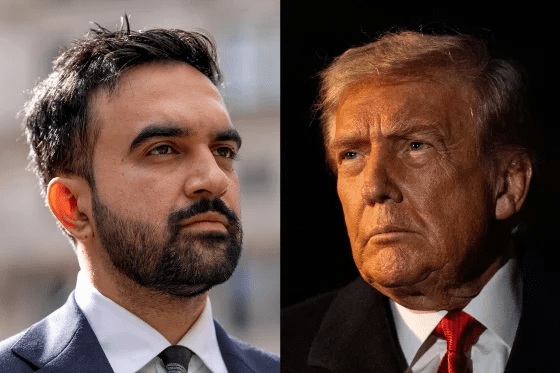
The feud’s backstory is a delicious tangle of mutual disdain, two Queens boys who’d grown up blocks apart but worlds away, now proxies for America’s red-blue rift. Trump, the brash developer whose Trump Tower loomed over Fifth Avenue like a gilded middle finger, had long mocked socialists as “crazy”—but Mamdani’s win, flipping the bluest city redder in voter turnout, hit personal. “He’s my little Communist—good luck with that rent control nonsense,” Trump quipped at a Florida rally on October 10, his crowd roaring as he dangled funding threats, echoing his first-term standoffs with de Blasio. Mamdani fired back on September 4, challenging Trump to a debate over “meddling in our democracy,” his X post racking 1.2 million views, a viral volley that turned their beef into Bronx cheers. Yet beneath the barbs beats a shared outsider’s heartbeat: both mobilized the disaffected—Trump with his “forgotten man” cry, Mamdani with tales of bodega workers crushed by $4 coffees and $2,000 studios. “Cost of living is why New Yorkers voted for Donald Trump,” Mamdani told MSNBC’s Chris Hayes on November 19, his admission a pragmatic olive branch. “I want to speak plainly about affordability—relentless, no stone unturned.”
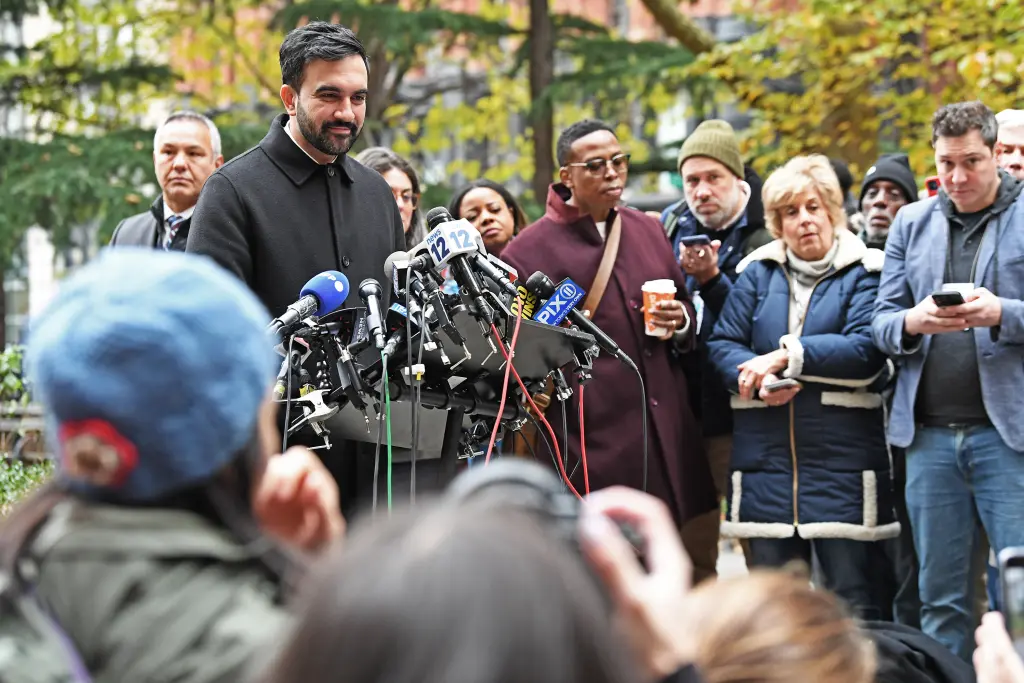
Friday’s meeting, details fuzzy as a fogged limo window—duration unknown, agenda guarded—looms as a high-stakes tango, where Mamdani’s idealism meets Trump’s dealmaking swagger. White House Press Secretary Karoline Leavitt, the Rhode Island Republican whose rapid-fire briefings have become cable catnip, set the tone on November 20: “Tomorrow we have a communist coming to the White House because that’s who the Democrat Party elected as mayor of the largest city in the country.” Her quip, delivered with a wink that masked steel, framed Trump as magnanimous: “President Trump is willing to meet with anyone… to do what’s right for the American people, whether blue states or red.” Pollster John McLaughlin, Trump’s longtime whisperer whose crystal ball nailed the 2024 landslide, predicted civility in a Post interview: “Trump will be gracious and polite… He loves New York, his head and heart are there.” McLaughlin, who’d known Trump since the 1980s, advised Mamdani against confrontation: “Picking a fight would be a mistake—he needs the president’s help.” The stakes? A $110 billion city budget teetering on pension shortfalls, federal funds comprising 10%—$11 billion—for housing, transit, schools. Mamdani’s wishlist: HUD grants for 50,000 affordable units, SBA loans for minority bodegas, expedited FEMA for subway fixes. “I’ll work with him on what benefits New Yorkers—if it hurts, I’ll say so,” Mamdani vowed at his presser, his resolve a quiet fire that echoed his assembly days sponsoring the Good Cause Eviction bill, shielding 100,000 tenants from no-fault ousters.
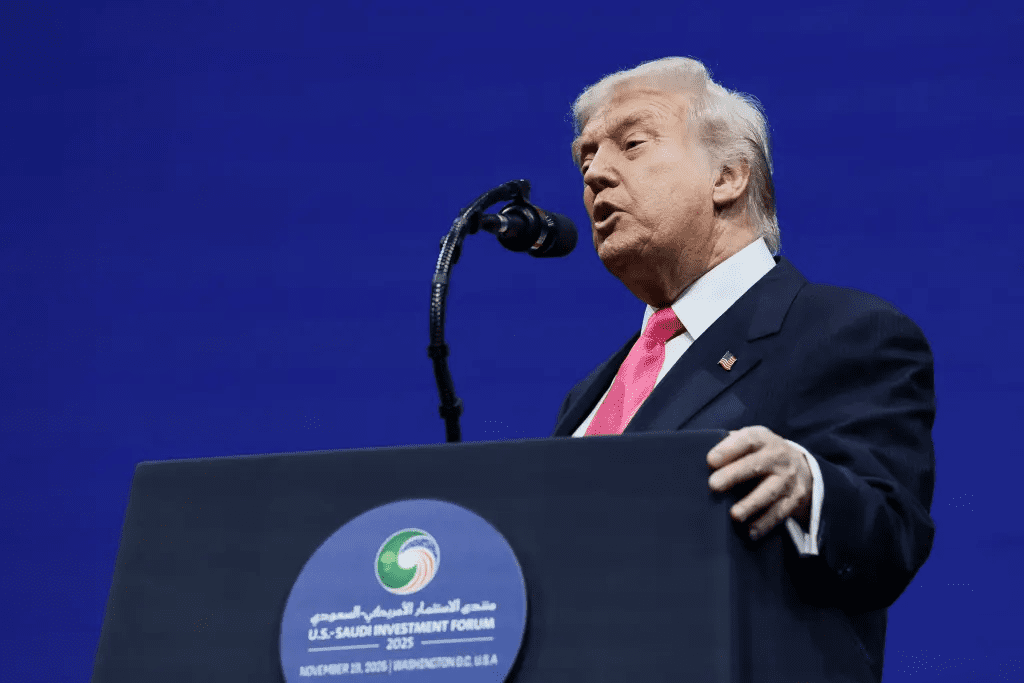
For Mamdani, the son of exiles whose father penned tomes on colonialism’s scars, this summit is personal—a chance to bend the arc toward equity in a city where 1 in 5 kids go hungry and evictions hit 80,000 yearly. Raised reciting Quran verses amid debates on Fanon, he embodies the hyphenated hustle: Muslim by faith, socialist by conviction, New Yorker by unbreakable bond. His win, a 50.4% squeaker over Cuomo’s comeback, mobilized 65% youth turnout, DSA dollars fueling door-knocks in Sunset Park and Flushing. “New York deserves a mayor who fights for us, not billionaires,” he thundered on election night, confetti raining in Times Square as his wife, artist Rama Duwaji, and toddler son beamed from the stage. Trump, the fellow Queens kid who’d built towers while Mamdani mixtaped as “Mr. Cardamom,” sees a mirror and a menace: both outsiders who weaponized wallet woes, but where Trump drills for dominance, Mamdani dreams of redistribution. Their September barbs—Trump’s “cut funds like a knife” after Hochul’s nod, Mamdani’s debate dare—turned the race into a proxy war, Trump’s meddling a gift that boosted Mamdani’s underdog aura.
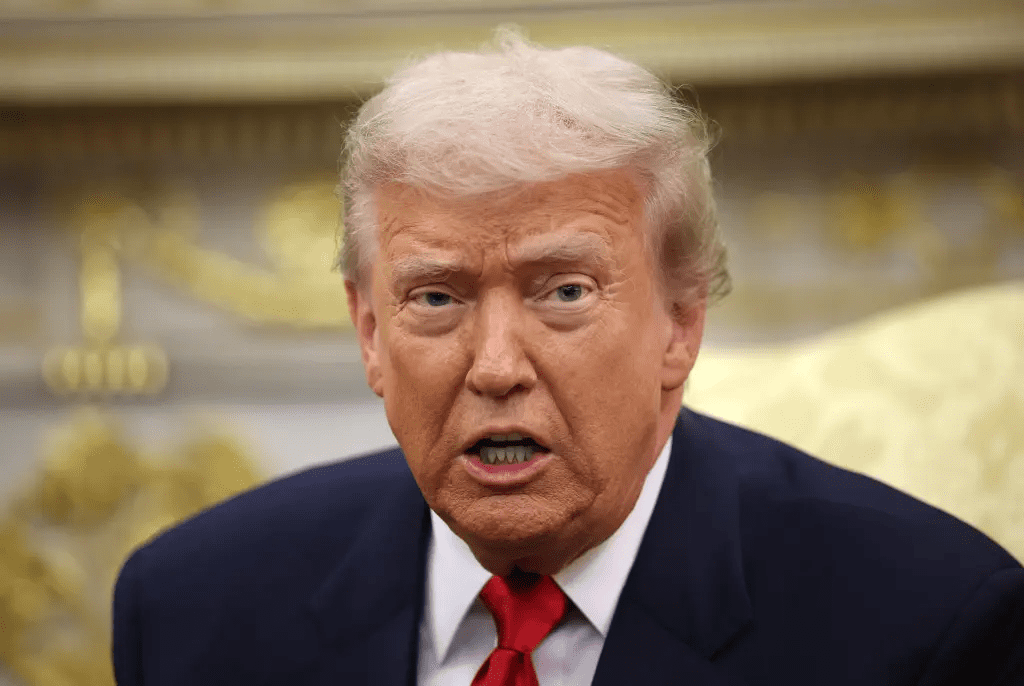
Hochul, the Democratic governor whose 2022 win masked a party fracturing, navigates the fallout with the tightrope grace of a politician eyeing 2026. Her endorsement of Mamdani on September 15, a pragmatic pivot from Adams’ scandals, drew Trump’s wrath but burnished her progressive creds. “Zohran’s vision aligns with New York’s values—affordability for all,” she tweeted, her words a shield against the blue-state rift where upstate conservatives grumble at downstate dominance. Trump-Hochul ties, fraught but functional, include semi-regular jabs—his “failed governor” barbs met with her “out-of-touch” retorts—but shared New York roots foster uneasy detente, from joint COVID fund pushes to Hochul’s quiet lobbying for Hudson Valley infrastructure. McLaughlin’s prediction rings true: Trump’s Queens heart beats for the city, his first-term tax cuts a love letter to its strivers. Yet Mamdani’s socialism—seizing city land for social housing, taxing luxury flips—clashes with Trump’s ethos, the meeting a potential minefield where funding flows or freezes on a whim.

As Friday nears, Mamdani steels in Astoria’s walk-up, poring over affordability binders with aides, his toddler’s laughter a reminder of the stakes. “I’m not concerned—this is opportunity,” he told reporters, his unfazed facade masking the kid from Kampala who once feared borders. For Trump, it’s theater: a photo-op with the “radical” underscoring dominance, perhaps extracting concessions on sanctuary policies or tax reforms. Leavitt’s “communist” quip, echoed in Fox chyrons, rallies the base, but McLaughlin’s whisper—”He needs help”—hints at pragmatism: New York’s $11 billion federal slice funds ports Trump touts for trade wars. The emotional heartbeat? New Yorkers like bodega owner Ahmed Khan in Jamaica, Queens, whose $4,000 rent chokes his American dream: “Mamdani gets it—we need deals, not drama.” Or retiree Rita Lopez in the Bronx, scraping Social Security for subway fares: “Trump’s tough, but if he helps with costs, I’ll take it.”
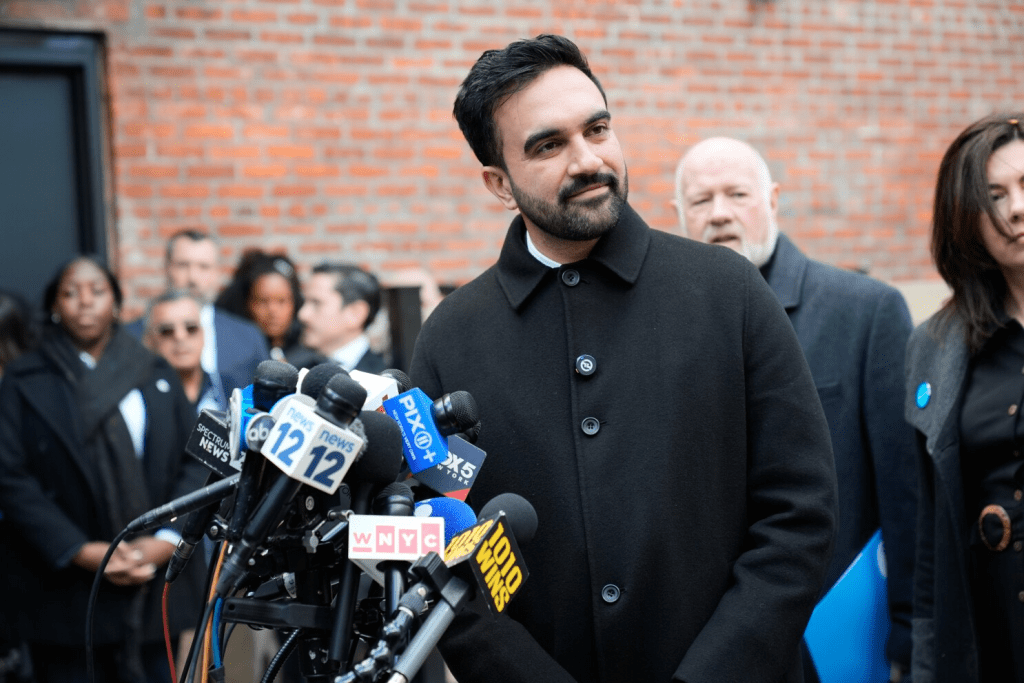
In this clash of charisma and conviction, the summit whispers of possibility—a city on the brink, two Queens sons bridging the unbridgeable, their words a lifeline for the struggling. For Mamdani, it’s legacy: affordability as equity, a mayor who speaks plainly to power. For Trump, it’s mastery: the deal that tames the tiger. As the Oval’s doors swing open, one feels the quiet thrill of what-ifs—a handshake that heals divides, a conversation that charts courses, reminding us that in politics’ grand theater, even adversaries can script a better act.
